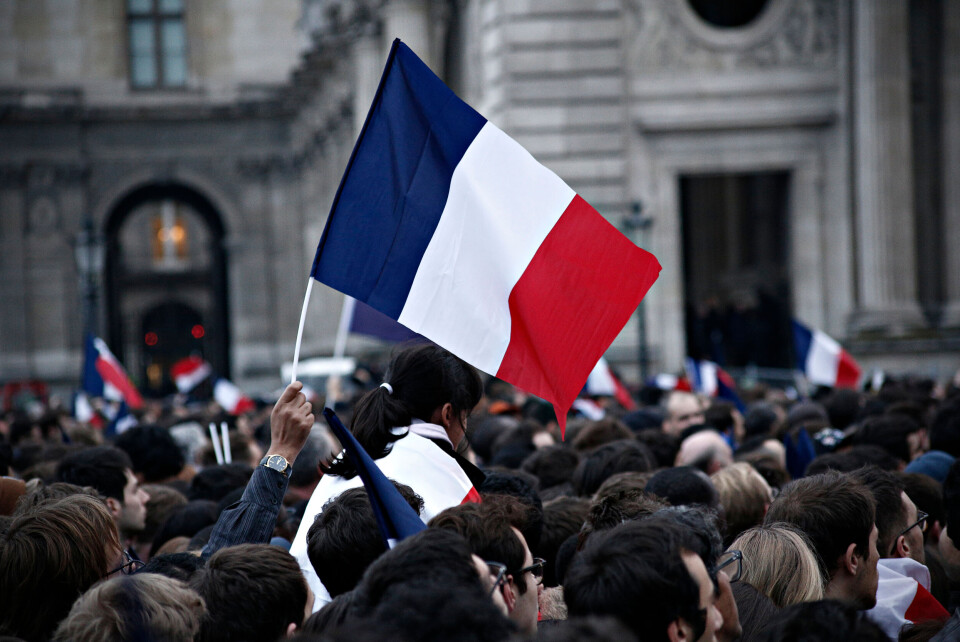-
Aer Lingus relaunches summer Nice-Cork service
Two flights per week between May and September link south of Ireland and France
-
Foreigners in France 'should be given local votes back'
Political right mobilised to try to halt debate on law extending rights
-
Is it time to stop changing the clocks in Europe?
Campaigners say it would help improve health and also reduce traffic accidents
Why does ‘left-wing’ France vote for election candidates on the Right?
High levels of social support make France look ‘left-wing’, but experts tell us why voting trends and ideologies have been moving Right since the 1970s

Voting intentions in France show the country has turned heavily towards the Right.
In a recent poll, almost a third (31%) said they intend to vote for a far-right candidate.
In total, 71% said they will vote in the first round for one of the five candidates who follow mainly right-wing policies.
This is an all-time high under the Fifth Republic and comes despite France often being seen internationally as left-wing, especially because of its strong work and social security laws.
Emmanuel Macron is viewed as Right
We have counted Emmanuel Macron (La République en Marche – LREM), who came first in the OpinionWay Kéa Partners poll for Les Echos with 27%, among the Right as he is increasingly viewed as such.
This can be seen, for example, in his focus on law and order, recently pledging an extra €15billion to modernise the police if re-elected.
Both his prime ministers have come from the Right, and he appointed Gérald Darmanin, who once accused Marine le Pen of being “soft on Islam”, as Interior Minister.
Read more: Racism still seen as a key problem in France despite rise of far-right
Spending power is identified as the key election issue, above social and environmental issues.
Mr Macron is followed by far-right Ms Le Pen (Rassemblement National) with 21% in the poll, carried out with 1,636 potential voters on March 22-25.
This would see the pair qualify for the second round in a re-match of the 2017 election
The other right-wingers are Valérie Pécresse (Les Républicains, 12%, fourth), far-right Eric Zemmour (Reconquête!, 10%, fifth), and anti-European Nicolas Dupont-Aignan (Debout la France, 1%, 12th).
Jean-Luc Mélenchon (left-wing La France Insoumise) was third with 13%.
Read more: ‘When I am president’: The key policies of final 12 French candidates
Left-wingers vote Macron because Left is too ‘fractured’ to win
Support for the Right is bolstered by a cohort of voters who express traditional leftist ideas but who have nonetheless distanced themselves from the leftist parties, said Emilien Houard-Vial, a political science lecturer at Sciences Po Paris.
He said some 30% of the voting population still have largely left-wing ideas but many have turned to centre-right parties Les Républicains or LREM since left-wing parties appear “fractured”.
“Left-wingers vote for Mr Macron thinking he would do better than any left-wing party alternatives,” said Mr Houard-Vial. He said many who voted for socialist leader François Hollande in 2012 were now likely to turn to Mr Macron or Ms Pécresse instead of voting for Parti Socialiste leader Anne Hidalgo (at just 2% in the polls).
Read more: What killed off the Left and can it recover?
Mr Houard-Vial said the lack of viable political alternatives could fuel high abstention from left-wing voters in particular, compared to right-wingers, who have various options.
“However, this does not mean the Right has won the battle within public opinion,” he said.
Right-wing ideas became mainstream
In reality, a gradual shift to the right started long ago, according to Gilles Richard, emeritus professor of contemporary history at Université Rennes 2 and president of the Société française d’histoire politique.
By the end of the 1970s, a decay in left-wing parties and ideas had already started to set in, he said, and 1984 was significant. It saw the tournant de la rigueur, when then-president François Mitterrand switched to free market economics despite having been elected on a redistributive economic programme.
Then the Front National won 10 European Parliament seats.
Both events helped right-wing ideas become mainstream just as the socialists and communists were struggling to maintain support in light of concerns of immigration and jobs, and the negative image of the USSR, which overshadowed traditional working-class issues, said Prof Richard.
Ever since, French presidential elections have always featured at least one far-right candidate, with Jean-Marie Le Pen and daughter Marine totalling seven attempts.
Having said this, Prof Richard identified opposition between pro-EU free market capitalists and anti-European nationalists as a stronger current trend than the traditional left/right divide.
Following the presidential elections will be the legislatives for MPs in May. The make-up of the Assemblée nationale usually, but not always, allows for a majority of seats to the party of the president and its allies.
However, the outgoing president’s LREM faces complications in uniting seven political factions among MPs who would in theory form part of its ‘majority’ if it succeeds.
Related articles
Comment: Macron election win would prove poor state of French politics
How do people in your French region typically vote and why?
‘Why the ‘great replacement’ theory does not make sense in France’
























